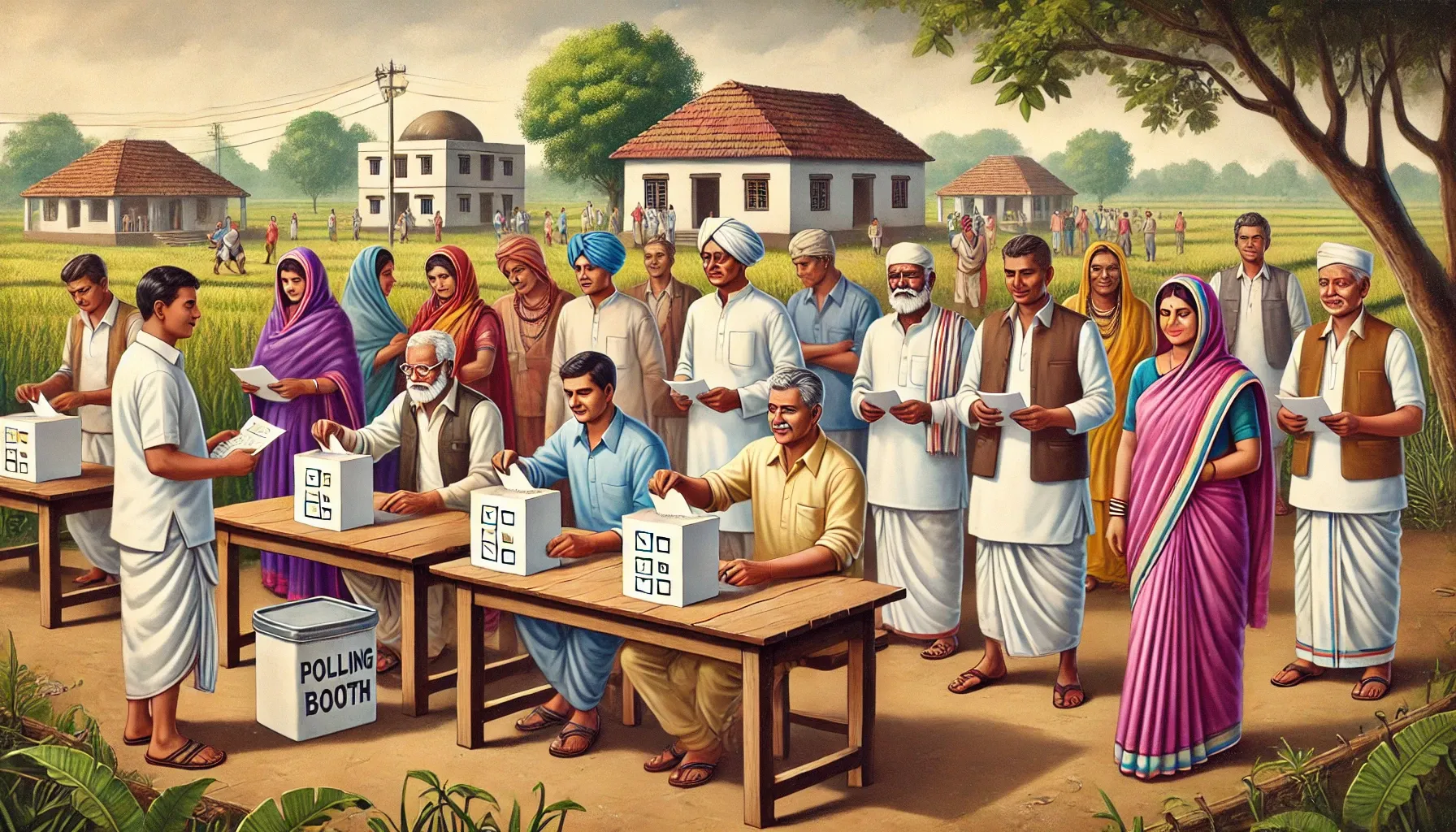The Supreme Court dismissed a plea challenging SC reservation in Gram Panchayat elections in Punjab, reinforcing the rotation principle to ensure representation for marginalized communities.

In a recent ruling on December 2, 2024, the Supreme Court of India dismissed a petition challenging the reservation of seats for Scheduled Castes (SC) in the Gram Panchayat elections of a village in Ferozepur, Punjab. The petitioners, led by Jagdish Chander, questioned two circulars issued by the Deputy Commissioner of Ferozepur, which had reserved the Sarpanch seat and three other wards for SCs/STs. Their argument was that only a small fraction of the village population belongs to these communities, while the majority—98%—belongs to the general class.
The case brought attention to a broader issue of reservation in local governance, particularly in Panchayat elections, and its alignment with the Constitutional principle of affirmative action for marginalized groups. The judgment underscores the rotation principle in reservation, which mandates periodic reservations for SCs/STs irrespective of their population size, ensuring their representation in village governance.
Background of the Case
- Petitioners' Claim: The petitioners argued that the village, which houses 335 residents, has only 5 individuals from Scheduled Castes. With 98% of the population being from the general class, they contended that the reservation was unjustified and discriminatory for the general class population.
- Circulars Challenged: The challenge was based on two circulars issued by the Deputy Commissioner, which reserved seats for Scheduled Castes/Scheduled Tribes (SC/STs) in Ferozepur’s Gram Panchayat elections. These circulars provided for the Sarpanch seat and three wards to be reserved for SC/ST members.
Supreme Court’s Ruling
The Supreme Court bench, comprising Chief Justice of India (CJI) Khanna and Justice Sanjay Kumar, reviewed the petition and dismissed the plea. They referred to the rotation principle for reserving seats for Scheduled Castes (SC) in local governance, which ensures representation for marginalized communities, even in cases where their numbers are significantly low.
- CJI Khanna’s Response: When the counsel for the petitioners argued that the village has only 5 people from SC/ST, CJI Khanna responded, “But they have to be given a chance, or else how will they come up?” This highlighted the Court's view that marginalized communities need opportunities to participate in local governance and improve their socio-political status, irrespective of their demographic strength.
- Legal Precedent and Rotation Principle: The rotation principle was explained as a system designed to ensure equitable participation for Scheduled Castes and Scheduled Tribes in Panchayat elections, even in areas where these communities form a small percentage of the population. This mechanism is essential to ensure that SCs/STs have an opportunity to be elected as Sarpanch or members of Gram Panchayats, and avoid exclusion from political participation.
Election-Related Issues and Limitations
- Filing of Petition: The petition was filed before the election results were announced. The election had already taken place on October 15, 2024, and the petitioners challenged the reservation ahead of the results. However, the Court observed that the limitation period for filing an election petition had lapsed since the polling had concluded, and thus, the challenge could not be entertained further.
- Court’s Stand on Election Rules: The petition did not challenge any election rules, and the Supreme Court observed that no legal challenge had been raised to the validity of the election process itself. As a result, the bench declined to entertain the plea further, noting that the reservation mechanism follows established legal precedents and does not violate electoral rules.
Court’s Observations on Representation and Reservation
- Historical Context: The Supreme Court also noted that while the current reservation exists, in previous terms, the Scheduled Castes had remained unrepresented in the Panchayat. This reinforces the importance of affirmative action in ensuring that SCs are given equal opportunities to participate in governance, particularly at the local level.
- SCs’ Rights to Equal Opportunity: The bench emphasized that affirmative action, through reservation, is necessary to provide SCs/STs with an equal chance to represent their community in local bodies, thereby addressing historic and systemic inequalities.
Broader Implications of the Judgment
- Affirmative Action in Local Governance: The ruling strengthens the constitutional mandate for affirmative action in local governance, particularly at the Panchayat level. It reiterates that the rotation principle in reservation is a tool designed to promote inclusivity in local governance, ensuring that SCs and STs are not marginalized.
- Legal Precedent for Future Cases: This judgment serves as a key legal precedent for future cases involving reservation in Panchayat elections. It reaffirms the validity of rotational reservations even when the SC/ST population in a village is numerically insignificant. The Court’s reasoning sets a benchmark for political representation in rural governance structures.
Case Details : JAGDISH CHANDER AND ANR. Versus THE STATE OF PUNJAB AND ORS.SLP(C) No. 28828/2024





